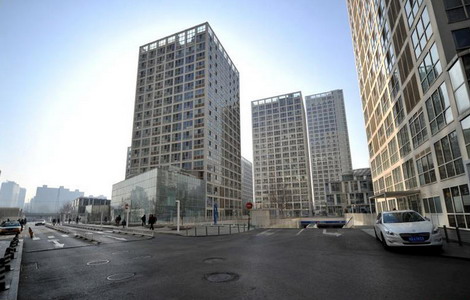De Gaulle's visionary decision
Updated: 2014-01-29 07:49
By Shen Wei (China Daily)
|
|||||||||||
However, the bilateral relationship has not always been smooth sailing. During the early 1990s, relations suffered from France selling weapons to Taiwan. This tension eased when France reiterated it acknowledged the one-China policy and prohibited future arms sales. During the two presidencies of Jacques Chirac, political, economic and cultural links between the two countries increased rapidly. But contrary to Chirac's pro-Asia foreign policy, Nicolas Sarkozy's approach to China was more troublesome. In 2008, China's political goodwill in bringing the Beijing Olympic Torch relay to Paris was undermined by chaotic disruptions, and relations were further damaged by Sarkozy's decision to meet the 14th Dalai Lama in Poland, which eventually resulted in the cancellation of a China-European Union Summit at the last minute.
While relations are once again on the upswing there are still current and future challenges to be faced. First, the trade deficit is increasing. According to the French government, there was a staggering trade deficit of nearly $36 billion in 2011. It is not surprising, President Francois Hollande has made economic diplomacy the priority for relations with China.
During his 40-hour trip to China, when he was the first Western leader to be received in Beijing by China's new President Xi Jinping, Hollande was accompanied by an entourage of French businesspeople looking to export everything from champagne to cooked pork products. Better balancing the bilateral trade and investment is also on the Chinese agenda. Though still modest, the Chinese government estimates Chinese investment in France to be $1.8 billion, which has created more than 9,000 jobs for France.
The bold decision of de Gaulle to establish diplomatic relations with China signaled the reemergence of France as a world power and the start of China's gradual recognition by the international community. Today both parties play an important role in both regional and global affairs, and the good momentum of the bilateral relationship has deep implications for the China-EU partnership and multilateral governance.
Although cooperation and competition will undoubtedly be a reoccurring theme in their economic and trade relations, both China and France should renew the strategic partnership by exploiting their economic complementarities, especially in areas such as energy, aviation, nuclear energy, tourism, financial services, environmental protection and sustainable urbanization.
Equally important, both countries must intensify their efforts to increase people-to-people exchanges and dialogues between civil societies, in order to reduce prejudices and enhance mutual understanding to ensure there is a fertile soil for bilateral relations to flourish in the future.
The author is a chair professor in EU-China Relations and Associate Dean for China at the ESSCA School of Management, France.
Related Stories
Performance celebrates China-France ties 2014-01-28 08:12
France predicts better future with China 2014-01-27 15:58
China, France celebrate 50 years of unique ties 2014-01-27 08:26
Shaolin Kung fu to mark China-France ties 2014-01-27 04:53
Today's Top News
Experts call for detailed H7N9 rules
HK confirms H7N9 case, to cull 20,000 poultry
Chinese President to visit Paris to boost ties
China and EU to boost political trust
US urges Japan to apologize
Int'l hacker got caught in China
More than 300 fall ill on Royal Caribbean ship
8.8% salary hikes expected for 2014
Hot Topics
Lunar probe , China growth forecasts, Emission rules get tougher, China seen through 'colored lens', International board,
Editor's Picks

|

|

|

|

|

|





